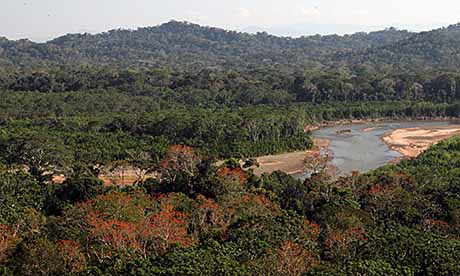Navigation auf uzh.ch
Navigation auf uzh.ch
Protected area or indigenous territory? Where multiple and sometimes conflicting institutions exist, indigenous people in the Bolivian Amazon have to continuously negotiate access to resources.

For indigenous people it is often difficult if an area where they have
lived in or used resources becomes protected. Even if they are allowed to
still access some resources, the modalities of this use have to be
negotiated continuously. Research in the Bolivian lowlands shows that
where multiple sets of rules and regulations (institutions) exist,
indigenous people situation-dependently choose rules through
'institutional shopping' to maintain access to resources. This knowledge
can be used to build robust institutions for protected areas from the
bottom up that are better adapted to the local context.
Wartmann, Flurina M.; Haller, Tobias; Backhaus, Norman